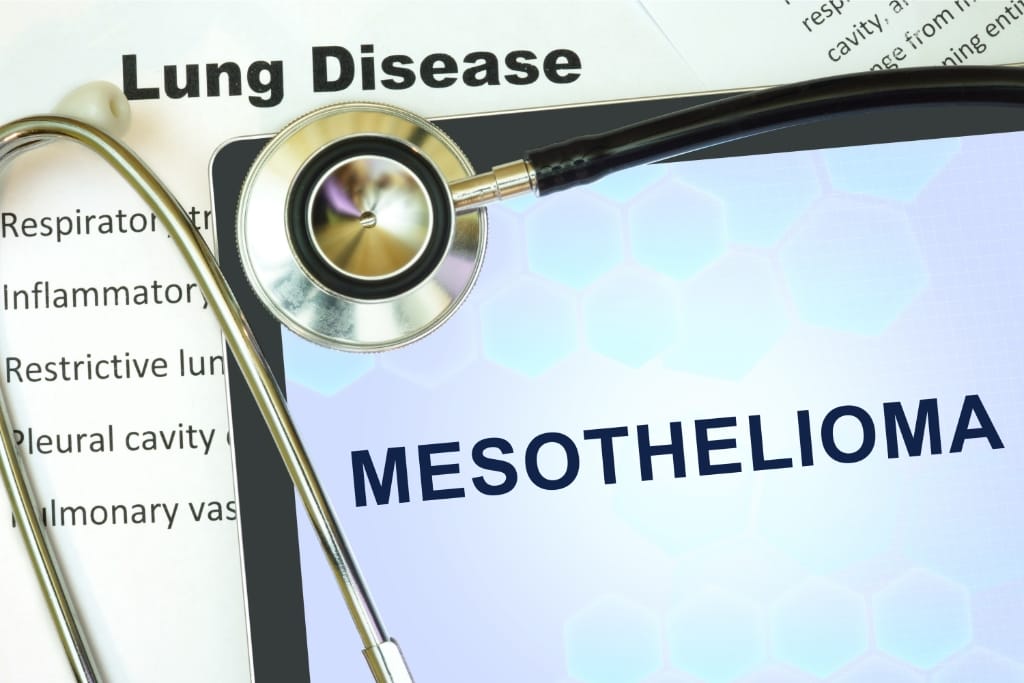Mesothelioma is an aggressive and rare cancer that affects the lining of the lungs, chest, abdomen, or heart.
It is caused by exposure to asbestos, a mineral that is commonly used in building materials.
Despite its rarity, mesothelioma is known to be one of the deadliest forms of cancer, with a poor prognosis.
If you or a loved one has been diagnosed with mesothelioma, it’s important to learn everything you can about the condition to make informed decisions about treatment options.
We’ll share ten things you need to know about mesothelioma.
1)) What Is Mesothelioma Exactly?
Mesothelioma is a cancer that develops in the lining of organs, most commonly the lungs, and is caused by exposure to asbestos.
The disease may take decades to develop, but it is highly aggressive once it does.
Symptoms include chest pain, coughing, and shortness of breath.
2)) Who Is At Risk For Mesothelioma?
Those who have been exposed to asbestos are at a higher risk of developing mesothelioma, including construction workers, shipyard workers, and those who work in manufacturing or mining industries.
Those who lived near asbestos mines or factories where asbestos was present are also at risk.
3)) How Is Mesothelioma Diagnosed?
Diagnosing mesothelioma can be challenging. Symptoms may be similar to those of other respiratory conditions, and diagnosis may require multiple tests, including imaging tests, biopsies, and blood tests.
4)) What Are The Treatment Options For Mesothelioma?
Treatment options for mesothelioma may include surgery, chemotherapy, and radiation therapy.
In some cases, a combination of these treatments is used.
The type of treatment recommended depends on the stage of the cancer, the location of the tumor, and the patient’s overall health.
5)) What Is The Prognosis For Mesothelioma?
The prognosis for mesothelioma depends on the stage of the cancer at diagnosis, the location of the tumor, and the patient’s overall health.
Unfortunately, mesothelioma is often diagnosed in the later stages, making it difficult to treat.
The survival rate for mesothelioma is generally poor, with the average life expectancy ranging from a few months to a few years.
6)) Is There A Cure For Mesothelioma?
There is currently no cure for mesothelioma. However, early diagnosis and treatment can result in better outcomes and improved quality of life.
7)) What Can I Do To Reduce My Risk Of Mesothelioma?
The best way to reduce your risk of mesothelioma is to avoid exposure to asbestos.
If you work in an industry where asbestos is present, take precautions such as wearing protective gear and following safety protocols.
8)) Can Mesothelioma Be Prevented?
The only way to prevent mesothelioma is to avoid exposure to asbestos.
Asbestos has been banned in many countries, but it is still present in many older buildings and homes.
If you are planning to renovate or work in an older building, have it inspected for asbestos before you begin any work?
9)) What Should I Do If I’ve Been Exposed To Asbestos?
If you have been exposed to asbestos, it’s important to speak to your doctor and get regular screenings to monitor for any signs of mesothelioma or other asbestos-related illnesses.
Consult with a lawyer who specializes in asbestos cases to determine your legal options.
10)) Where Can I Find Support For Mesothelioma?
If you or a loved one has been diagnosed with mesothelioma, there are many organizations and support groups available that can provide help and support.
These groups can help connect you with resources and provide emotional support during the difficult process of dealing with a mesothelioma diagnosis.
Conclusion
Mesothelioma is a devastating disease that affects thousands of people every year.
If you or a loved one has been diagnosed with mesothelioma, it’s important to learn as much as possible about the condition, the treatment options available, and the resources that are available to help.
By staying informed, taking precautions to avoid exposure to asbestos, and seeking support, you can navigate the challenges of mesothelioma and improve your quality of life.
Download Our Free E-book!








